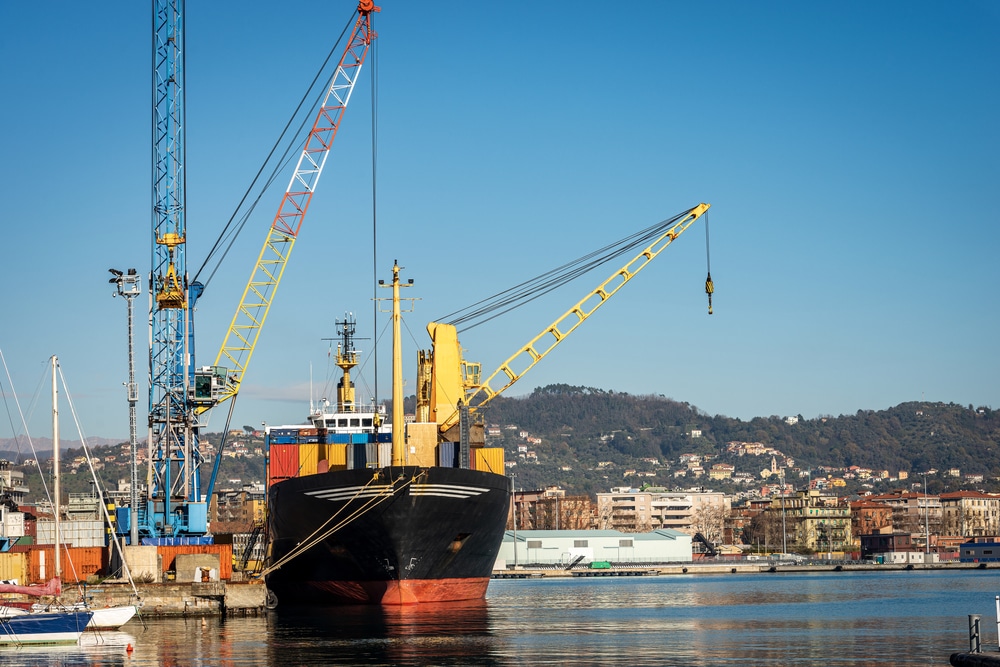
A crane collapse in Visakhapatnam, India highlights the dangers of working around cranes on ships and in shipyards. For maritime workers, cranes are a common piece of equipment onboard ships, at jetty’s, and in shipyards. When a malfunction or collapse occurs, it is common for maritime workers to suffer injuries, or even death.
Crane Collapse Highlights Risks to Maritime Workers
According to reports, a jetty crane collapsed at Hindustan Shipyard Limited (HSL) during commissioning. The rail-mounted crane had been recently installed. A team of 11 people were inside the crane cabin conducting a load test when the crane collapsed.
The collapse killed all 11 people inside the cabin and injured others. Among those killed were contractors and HSL employees. An investigation into the cause of the collapse is ongoing. HSL is a government-owned shipbuilder. The company is best known for their role in developing the first nuclear-powered ballistic missile submarine in India.
The shipyard is investigating the cause of the accident, and an independent inquiry is also expected. Furthermore, Defense Minister Rajnath Singh said,
“Extremely anguished by the loss of lives due to an accident at HSL facility in Vishakhapatnam. My thoughts are with the bereaved families. May the injured recover quickly. [A] Departmental Enquiry Committee has been instituted to establish the causes leading to the accident.”
Cargo and Crane Injuries
On most ships and in most ports, cranes are a valuable tool for loading and moving cargo. These beasts of the maritime industry are crucial to moving goods where they need to go. Unfortunately, even a minor crane malfunction or incident can have devastating consequences for those working around it.
Cargo and crane injuries are unfortunately common in the maritime industry. The Occupational Safety and Health Administration (OSHA) estimates that one in 1,000 maritime crane operators will suffer a fatal accident during their career. Numerous other maritime workers will suffer injuries due to crane accidents.
Common Causes of Crane Accidents
Crane accidents and injuries involving cranes can happen for a variety of reasons. There are always some incidents that are truly accidents. However, many crane accidents are preventable. Some of the more common causes of crane accidents include:
Operator Errors
When crane operators do not have proper training or make mistakes, devastating accidents can happen. Some examples of crane operator errors include:
- Failing to ensure proper loading and balancing of cargo before moving
- Failing to ensure that the crane is not overloaded
- Moving hazardous materials in an unsafe manner
- Not using a spotter or tag lines
- Not communicating with other workers while loading or unloading cargo
- Driving the crane at an unsafe speed
- Not reporting defects or malfunctions during operation
It is important that crane operators and maritime workers that work around cranes have the proper training to ensure their safety.
Mechanical Failure
Mechanical failure can happen on various parts of the crane. There are many moving parts and joints that must work together in order for a crane to operate properly. If the crane does not receive proper maintenance, corrosion and fractures can occur, which can cause a crane collapse.
Crane owners and employers must maintain cranes and all equipment. They must perform routine maintenance and repair defects or malfunctions. Failure to maintain the crane leading to mechanical failure can result in the employer being held liable for any injuries that occur.
Getting Help after a Crane Collapse Injury
If you are suffering injuries due to a crane collapse, you may be eligible for compensation under maritime law. Maritime laws allow maritime workers to pursue compensation for injuries if they are due to the negligence of another person. For example, a crane collapse resulting from an employer who did not correct a defect may be liable for your injuries and be required to compensate you accordingly.
Maritime workers may be eligible for compensation for:
- Medical expenses
- Cost of rehabilitation
- Lost wages
- Disability
- Pain and suffering
Find out if you are eligible for compensation for your crane collapse injury by contacting Maritime Injury Guide. Our maritime lawyer can help you understand your legal rights and determine what your options are for recovery.
To request a free injury consultation, contact Maritime Injury Guide by calling 1-866-871-8422. You can also request more information by filling out our online contact form.
Sources: